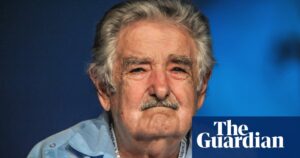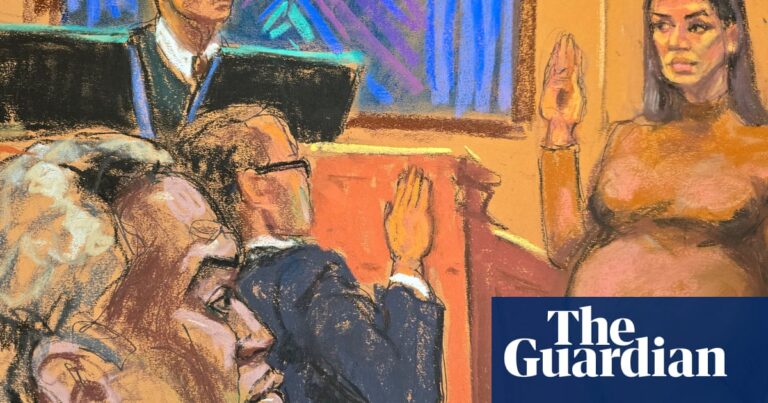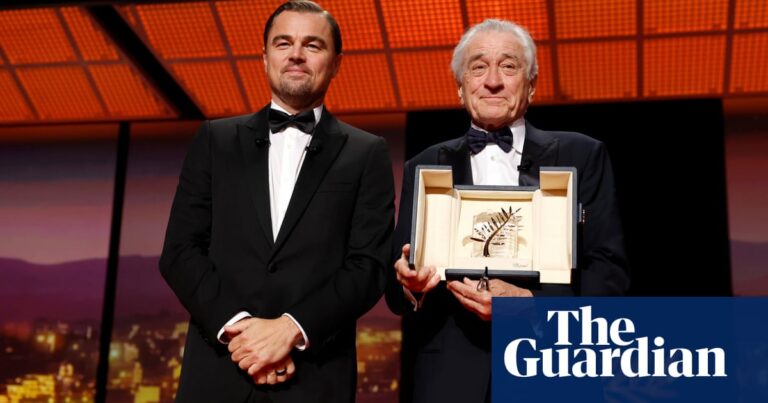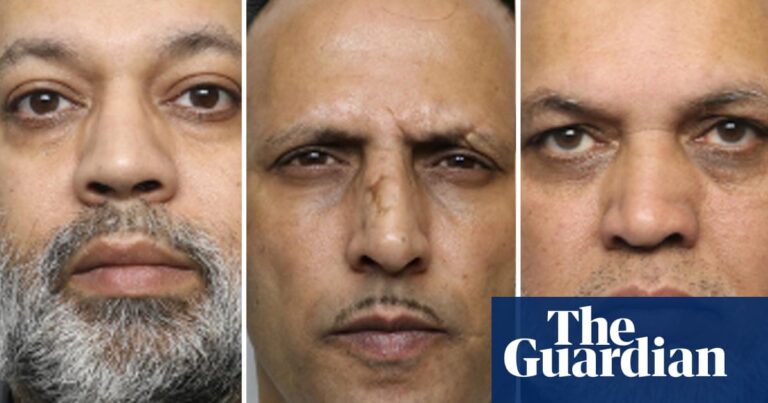In 2002 Faithless were granted a sunset slot on Glastonbury’s Pyramid stage, and attracted close to 100,000 people. “England had actually just lost the football, so lifting the crowd took real energy to get people going,” says the band’s Sister Bliss. “It’s a funny coincidence – we’ve played Glastonbury twice before and both times England had lost in a big game.”
The electronic band, then consisting of vocalist Maxi Jazz and production duo Sister Bliss and Rollo, still won the crowd round, thanks in part to two genuine 90s classics: Insomnia and God Is a DJ. The former has frontman Maxi Jazz delivering a monologue racked with anxiety about sleepless nights, but its central line “I can’t get no sleep” became a joyous mantra for nocturnal ravers – and the subsequent synth melody was an instant classic. On 1998’s God Is a DJ, meanwhile, Maxi Jazz delivered a gripping sermon, declaring the club as his church and dance music as offering the same deliverance as religion. Fans duly worshipped them.
Faithless are now going on a live tour for the first time in eight years, including a return to Glastonbury: these will be the first shows without Maxi Jazz, who died in 2022 aged 65, having suffered from an undisclosed illness. “I keep thinking Maxi is just going to walk through the door, actually,” Bliss says over a video call between rehearsals. “I wish he was here, but his spirit will guide the whole show.”
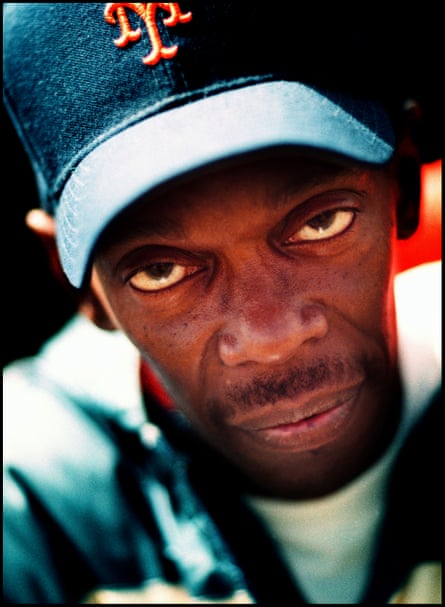
Performing old and new music with a full live band, they will attempt to address a thorny question: how do you replace one of the most iconic voices in dance music? “The way Maxi would hold the stage, and the way he would deliver his lyrics, people would feel as if he was talking directly to them,” Bliss acknowledges. “We can never replace him or directly replicate it, but we want to carry his legacy with us everywhere.”
Maxi was a founding member of the group who formed in 1995, released six studio albums then went on hiatus in 2010, before touring again in 2015. Maxi left the following year and didn’t appear on a subsequent new Faithless album, All Blessed. “Obviously we wanted him featured” on that album, says Bliss, but his illness didn’t allow it. “It was really difficult [recording without him] because Maxi was the moral and philosophical spine of Faithless.”
For all that his delivery could be wracked or have a priestly quality, there were more laid-back conversational tracks and Bliss says he often brought humour on stage. “Once we were playing up a mountain in Norway in minus five degrees. All the gear packed up, so we had to do a very weird acoustic version of Insomnia. We had loads of schnapps and [Maxi] was falling over the ice but then styling it out,” she laughs.
Images of Maxi will appear on screens at the gigs, but it’s the more abstract elements of Maxi’s character and values that will be tangible, including the sense of a dance music crowd being an egalitarian space where hierarchies are removed. “He really was a man of the people; he was never swishing around in a limo and not talking to people. He always considered himself one of everyone” – reminiscent of the “we come one” credo he uttered on the anthem of the same name. “It’s rare to have a frontman who is both mysterious and also approachably friendly.”
Maxi can never be replaced, but the band have been working with vocalists they feel share similarities with his vision: “Very conscious, thoughtful and talented young people.” One is Amelia Fox, who went to school with Rollo’s son and was approached by him after a school concert. “The rest is history,” Fox says. She featured on Rollo’s solo project WeDisappear (made under his alias R Plus) and is now enjoying Faithless rehearsals, “bonding with the band and then being able to utilise those relationships on stage”.
Vocalist Nathan Ball will also be part of the new Faithless live band after appearing on the tracks I Need Someone and Synthesizer from All Blessed. “The rehearsals have been an amazing journey,” he says. “I’ve loved hearing all the epic stories about [Maxi] from the band, and I just hope we can bring his incredible spirit to the shows and to the fans whose lives he clearly changed with his presence.”
Bliss commends the new band for embracing the family-oriented ethos of Faithless. “Historically what made us as strong as we were was our connection,” she says, recounting vodka shots before their big Glastonbury gigs, and laughs together while rehearsing for Alexandra Palace. “Some of my favourite memories are just us falling off the sofa from laughing so much. There was always a collective vibe to Faithless – and it definitely feels like that at the moment.”
The London show of their tour is at Camden’s Roundhouse, which returns them to the start of their story. “We did our first Faithless gig at the Jazz Cafe [in Camden], which was just insane because we were only selling 16 albums a week at the time,” she says. This year’s Roundhouse gig “sold out within five minutes, but in the first minute the seated area sold out – that says a lot about the demographic of loyal Faithless fans,” she laughs. But while they may chiefly appeal to ageing ravers with weakened knees, Bliss says she is keen to support a new generation of open minded vocalists who are as daring as Maxi was, with a fund and prize in his name “for young people who would otherwise not have those chances. A bit like an alternative Mercury prize.”
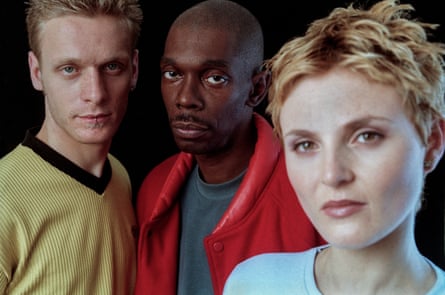
They are also currently working on a new album, expected later this year, and had planned for recording equipment to go to Maxi’s home so he could talk about his life and philosophy into a microphone, not rapped or sung but simply spoken. Snippets of his speech would have formed part of the album. “I texted him and told him I got the equipment and was ready to come,” Bliss says. “I was happy he was up for doing it. He read my text and didn’t reply – often when he didn’t reply he was in hospital. Then he passed the next day.”
But he will remain vivid in fans’ minds at the upcoming tour. A practising Soka Gakkai Buddhist, Maxi “was all about compassion”, Bliss concludes. “Playing music live, I don’t think you can replicate that feeling of connection and compassion. People worry about AI, but people want to communicate with other human beings. They want bodies in a room; energy in the room that’s tangible. Maxi loved that – so we’ll continue to honour that.”
Source: theguardian.com








